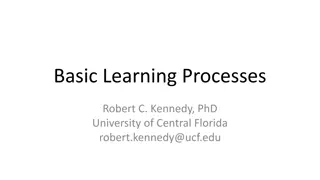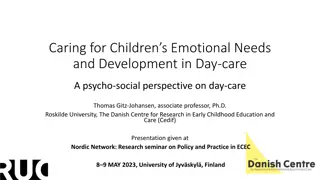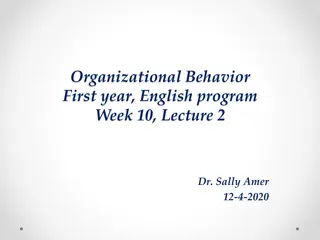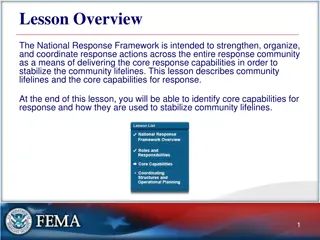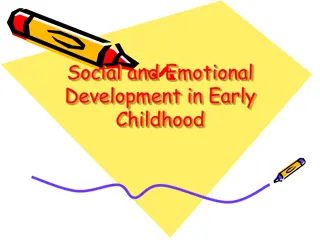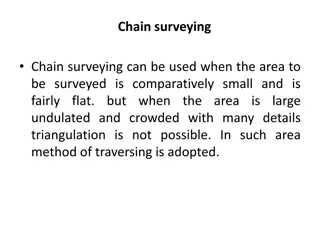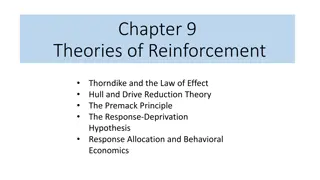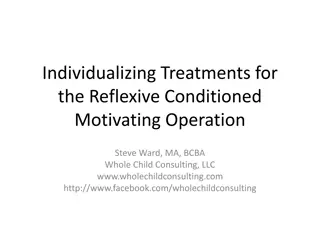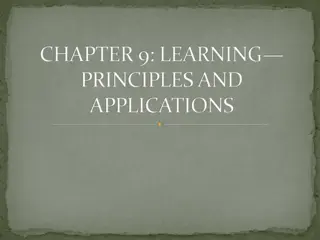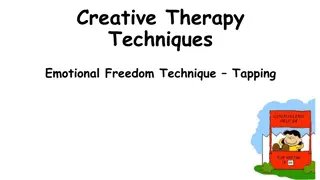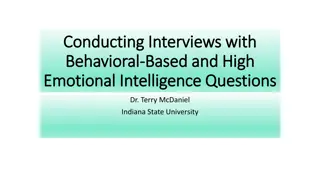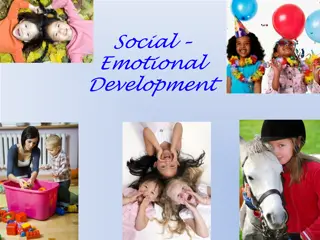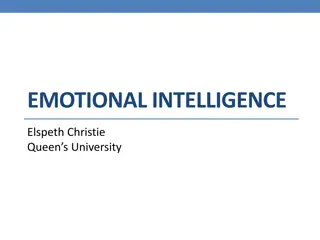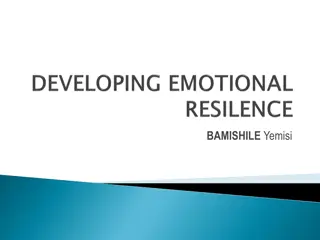Comprehensive Guide to Initial Operational Response (IOR) in Hazardous Substance Incidents
This guide outlines the objectives, principles, and key elements of Initial Operational Response (IOR) to incidents involving hazardous substances or CBRN materials. It covers the stages of response, transition to Specialist Operational Response (SOR), primary objectives of IOR, JESIP principles, an
4 views • 25 slides
Understanding Emotional Patterns in Families
Families play a crucial role in shaping individuals' emotional responses and behaviors. Caregivers influence how we perceive and manage emotions, impacting our emotional well-being. By examining how different emotions are accepted, rejected, and modeled within families, one can gain insights into th
10 views • 14 slides
Rapid NHS Response Teams: Enhancing Home Care and Avoiding Hospital Admissions
Somerset Foundation Trust Community offers a comprehensive range of services, including Rapid Response, Urgent Community Response (UCR), and Hospital@Home (H@H). These services aim to provide timely and effective care to individuals in their homes, reducing the need for hospital admissions. Rapid NH
15 views • 6 slides
Basic Learning Processes
Explore the essential vocabulary related to operant learning and reinforcement, including terms like automatic reinforcer, conditioned reinforcer, and positive reinforcement. Gain insights into theories such as drive-reduction theory and response-deprivation theory. Enhance your knowledge of behavio
3 views • 31 slides
Understanding Children's Emotional Development in Daycare from a Psycho-Social Perspective
Scientific evidence emphasizes the early onset of emotional development and its profound impact on lifelong outcomes. The quality of childcare processes plays a pivotal role in shaping children's social-emotional development, highlighting the importance of nurturing emotional relationships in daycar
0 views • 10 slides
Understanding Emotional Labor in Organizational Behavior
Emotional labor involves employees expressing organizationally desired emotions during work interactions, impacting job performance. Employees may face emotional dissonance when projecting one emotion while feeling another, leading to surface or deep acting. Affective Events Theory (AET) suggests th
0 views • 19 slides
Understanding Emotional Wellness for Inner Well-Being
Exploring the importance of emotional wellness in cultivating inner well-being, this content delves into the facets of social, mental, and emotional well-being. It emphasizes the significance of acknowledging and accepting our feelings, maintaining a positive outlook, and finding purpose and peace w
1 views • 27 slides
Understanding Community Lifelines and Core Response Capabilities for Stabilizing Communities
The National Response Framework aims to strengthen response actions by coordinating across the entire community to stabilize community lifelines. Community lifelines are critical services essential for human health, safety, and economic security. Stabilizing these lifelines is crucial during respons
2 views • 14 slides
Early Childhood Social and Emotional Development Insights
Social and emotional development in early childhood is influenced by various factors such as family dynamics, parenting styles, peer interactions, and cultural backgrounds. Erikson's stages highlight the importance of initiatives and self-understanding in shaping emotional growth. Parents play a cru
2 views • 35 slides
Understanding Chain Surveying: Principles and Operations
Chain surveying is a method used for small, flat areas while traversing is preferred for larger, undulated terrains. Principles involve dividing areas into triangles for accurate plotting, with well-conditioned triangles being ideal. Operations such as chaining, ranging, and offsetting are essential
2 views • 23 slides
Theories of Reinforcement in Behavioral Economics
Explore key theories of reinforcement including Thorndike's Law of Effect, Hull's Drive Reduction Theory, the Premack Principle, Response-Deprivation Hypothesis, and Behavioral Economics concepts such as Response Allocation. Learn about reinforcers as stimuli, primary and secondary reinforcers, the
2 views • 9 slides
Understanding Emotional Intelligence in the Workplace
Explore the significance of emotional intelligence in the workplace, its definition, five competencies, case studies, and strategies to enhance skills. Dive into scenarios, role-plays, misconceptions, and why emotional intelligence is crucial for professional success. Learn about managing emotions,
0 views • 33 slides
Individualizing Treatments for Reflexive Conditioned Motivating Operation
Understanding the importance of individualizing treatments for escape/avoidance behaviors in individuals with ASD. Factors such as behavior change speed, alternative repertoires, and aversive stimuli considerations are crucial for effective intervention. Generic interventions may not address behavio
0 views • 47 slides
Understanding Emotional Intelligence: Key Principles and Skills
Emotional intelligence, as presented by David Taylor, is crucial in perceiving, understanding, and managing emotions in oneself and others. It plays a vital role in professional and personal relationships by enhancing emotional awareness, recognition, and management. The principles of emotional inte
1 views • 22 slides
Understanding Classical Conditioning Principles
Classical conditioning is a learning process where associations are formed between stimuli, resulting in behavioral changes. Pavlov's experiment with dogs illustrates this concept, involving neutral and unconditioned stimuli triggering responses. Learning occurs gradually during acquisition, with ge
0 views • 41 slides
Theories of Classical Conditioning: Critical Concepts and Pavlov's Stimulus Substitution Theory
Understand the key aspects of classical conditioning, including the critical CS-US relationship and Pavlov's Stimulus Substitution Theory. Explore why organisms respond predictably, uncover criticisms and flaws in the theory, and delve into the bigger problem of selecting for certain conditioned res
0 views • 75 slides
Emergency Response and Management Overview
Understanding emergency response involves defining terms like emergency, supervision, command, and coordination. This includes the objectives of emergency response operations, key characteristics, requirements for effective response, and stages of response such as warning, threat, incident, assessme
6 views • 15 slides
Understanding Punishment in Operant Behavior
Aversive stimuli can influence operant behavior through noncontingent punishment, as seen in conditioned emotional responses like conditioned suppression. The threat of upcoming aversive events can reduce responding, highlighting the importance of conditioned emotional responses. Punishment operates
0 views • 27 slides
Understanding the Impact of Cortisol on Emotional Expression in Young Children Facing Economic Hardship
This study explores how the stress hormone cortisol is related to emotional expression in young children experiencing economic hardship. Cortisol levels can indicate stress, but prolonged exposure to stress can lead to desensitization. The research focuses on children attending Head Start preschools
0 views • 15 slides
Understanding Emotional Abuse: Signs, Effects, and How to Respond
Explore the intricacies of emotional abuse through the eyes of Dr. Katia Reinert, Associate Director of GCHM. Delve into the techniques used by emotional abusers, self-assessment for identifying abuse, effects of abuse, and guidance on how the Christian community can help. Discover the challenges of
1 views • 31 slides
Understanding Emotional Freedom Technique (EFT) Tapping for Emotional Wellness
Emotional Freedom Technique (EFT) tapping, rooted in acupressure, offers a holistic approach to addressing stress, fear, and phobias. This body-centered therapy draws on ancient Chinese practices, stimulating specific acupoints to improve energy flow. Studies show effectiveness in treating depressio
0 views • 4 slides
National Response Center Operations Overview
Established as a vital support entity in the National Response System, the National Response Center (NRC) serves as the federal contact point for pollution incident reporting. Handling various responsibilities such as coordinating responses to pollution, railroad, and port security incidents, the NR
0 views • 11 slides
Enhancing Emotional Intelligence Through Behavioral Interview Questions
Explore the key aspects of emotional intelligence, including social-emotional competencies and cognitive, affective, and behavioral competencies. Learn how to conduct interviews focused on emotional intelligence and discover the importance of relationships, self-awareness, responsible decision-makin
0 views • 44 slides
Understanding Social and Emotional Development in Young Children
Explore the general emotional patterns and specific emotions in young children aged 4 to 6 years. Understand the positive and negative characteristics such as self-centeredness, independence, anxiety, and fear, and learn how to deal with common fears like imaginary dangers and separation anxiety. Re
1 views • 19 slides
Safeguarding Infants from Emotional Maltreatment: What Works?
Safeguarding infants from emotional maltreatment is crucial during the first two years of life. Emotional abuse, though not always accompanied by physical or sexual abuse, can have severe impacts on a child's development. The paper explores the structure, prevalence, and impact of emotional abuse on
3 views • 59 slides
Duties of AC Coach Escorting Staff: Guidelines for Rail Staff in Air Conditioned Coaches
Guidelines and recommendations for escorting staff in air conditioned coaches and power coaches, including details on the complement of electrical staff needed, duty hours, and staff divisions for Rajdhani trains, deluxe trains, and self-generating coaches. The provided information outlines the requ
0 views • 19 slides
Coastal Commission Meeting June 9, 2022 - Project Plans and Approval Conditions
The Coastal Commission Meeting on June 9, 2022, at the Greer Residence in Newport Beach, California, discussed the proposed development involving the removal of unpermitted structures and encroachment into the Seminuk Slough wetland. Project plans, including the demolition of a deck, were presented
0 views • 5 slides
Understanding Classical Conditioning: Pavlov's Experiment and Responses
Explore the principles of classical conditioning through Pavlov's experiment, including the types of responses like conditioned emotional reactions. Learn about the components of classical conditioning such as unconditioned stimulus and response, conditioned stimulus and response, and how the proces
0 views • 42 slides
Understanding Emotional Intelligence and its Components
Emotional Intelligence is about identifying, understanding, and managing emotions, recognizing your own needs and those of others, and enhancing interpersonal skills. It involves self-perception, self-expression, and affects decision-making and stress management. People with high emotional intellige
0 views • 20 slides
Understanding Adolescent Development and Emotional Intelligence by Finbar Chambers
This collection presents insights on Gardner's Multiple Intelligences, Emotional Intelligence, and the importance of understanding adolescent development. Finbar Chambers explores emotional makeup, behavior management strategies, and the transition to independence during adolescence. Discover the im
0 views • 20 slides
Understanding Language Change and Sound Evolution
Explore the processes and examples of language change, including sound alterations, observed notations, reconstruction methods, and the regularity of sound changes. Discover how linguists analyze conditioned changes, assimilation, and the neogrammarian model to track linguistic evolution.
0 views • 31 slides
Understanding Emotional Labour in Probation Practice
Explore the concept of emotional labour in probation practice, highlighting the management of emotions, impact on research and practice, links to burnout, and the role of managerialism and rationality. Delve into emotional work, Chamberlayne's 'emotion work', and feeling rules associated with emotio
0 views • 16 slides
Importance of Emotional Intelligence in Religious Leadership
Religious leaders benefit greatly from high emotional intelligence, leading to better performance, increased staff retention, and a more positive work environment. Emotional intelligence plays a vital role in pastoral ministry, enhancing emotional care for congregants. Educational programs focusing
0 views • 15 slides
Understanding Emotional Intelligence in the Workplace
Emotional intelligence plays a crucial role in professional success, impacting how we lead teams, handle pressure, and build relationships. This webinar explores the definition of emotional intelligence, its significance in the workplace, and practical ways to enhance it. Discover the key elements o
0 views • 14 slides
Understanding Emotional Intelligence: Definition, Importance, and Examples
Emotional intelligence, a term that originated in the 1960s, refers to the ability to recognize and manage emotions in oneself and others effectively. It involves identifying emotions, understanding their impact, and using this awareness to guide behavior. Emotional intelligence is crucial for perso
0 views • 35 slides
Enhancing Emotional Resilience: Key Strategies and Benefits
Exploring the concept of emotional resilience, this content covers the definition of emotions, emotional resilience, and the domains of resilience. It delves into the importance of emotional resilience, ways to improve it, and how it helps individuals bounce back from adversity, maintain balance, an
0 views • 17 slides
Exploring the Ups and Downs of Emotional Health Throughout the Day
Dive into a visual journey depicting the ebb and flow of emotional well-being in a day, from morning reflections to evening introspections. Experience different facets of emotional health through images, timelines, and audio clips, offering insights to nurture your mental and emotional well-being.
0 views • 7 slides
The Impact of Emotional Intelligence in Nursing Practice
Emotional intelligence plays a crucial role in nursing, influencing personal well-being, patient outcomes, and stress management. Nurses with higher emotional skills are better equipped to navigate the challenges of their profession. Understanding the history and significance of emotional intelligen
0 views • 23 slides
Performance Development: Emotional Factors and Strategies
Understanding emotional factors in performance development, collecting relevant information, utilizing positive self-talk for emotional development, and the importance of monitoring and evaluating performance for continual improvement and targeted training. Visual aids complement the explanation of
0 views • 4 slides
Social-Emotional Health and Resilience of Teachers in East European Countries
This study explores the social-emotional health and resilience of teachers in Latvia, Lithuania, and the Slovak Republic as part of an Erasmus+ project aimed at developing a digital support system to promote their well-being. The interplay between mental health, social-emotional health, and resilien
0 views • 30 slides



